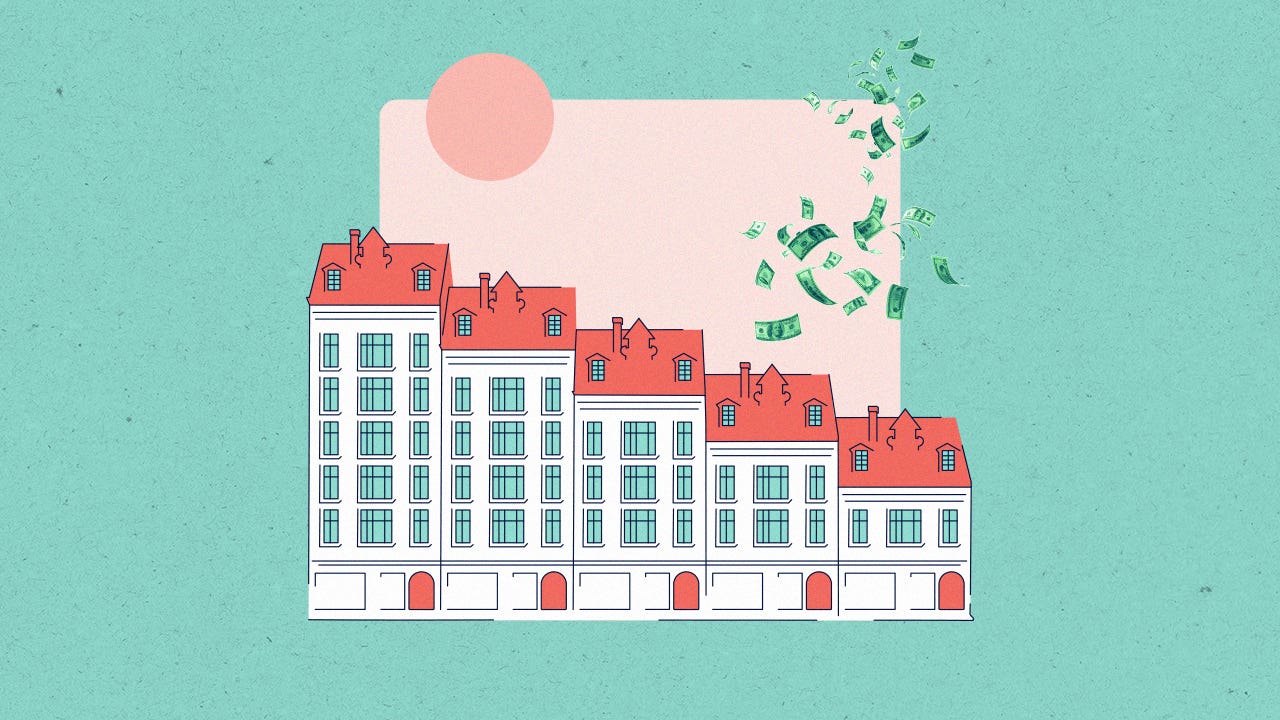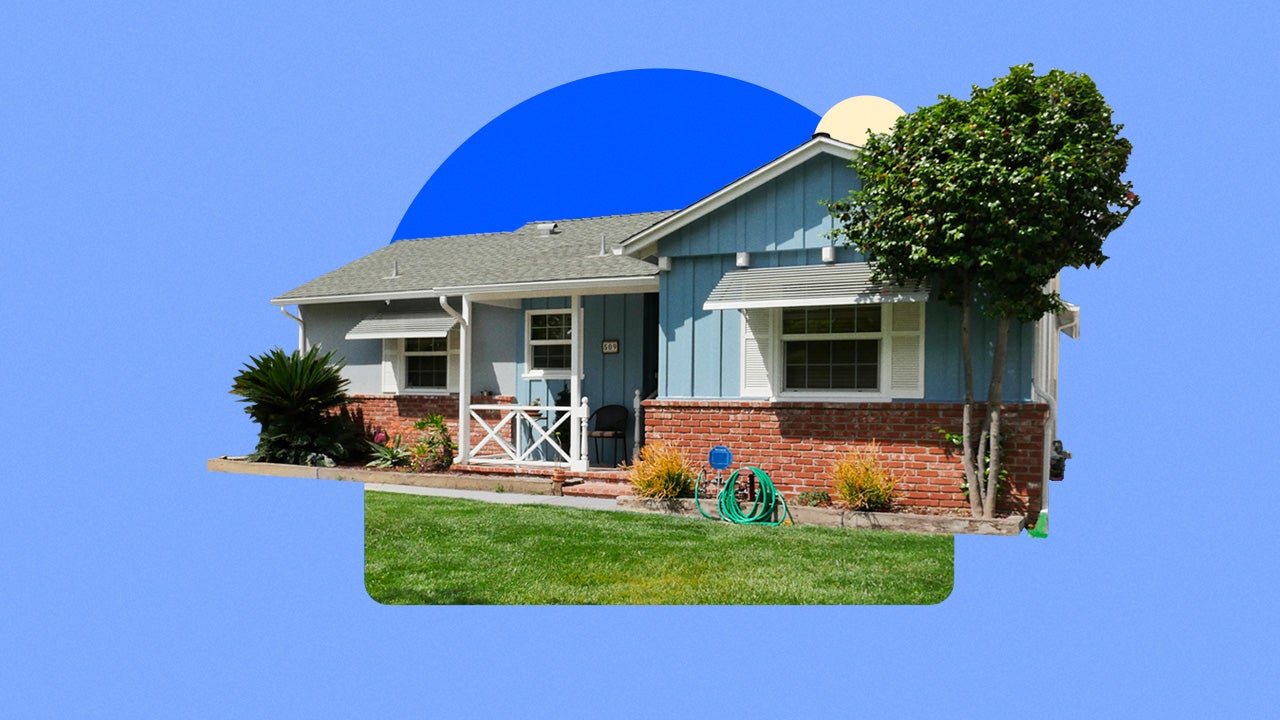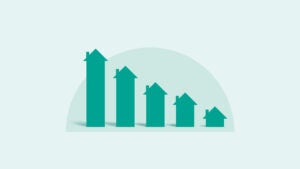What is negative equity?




Key takeaways
- Negative equity occurs when your home’s value sinks below the amount you owe on it (from your mortgage or other home loans).
- Having negative equity can make it difficult to sell or refinance your home.
- You can’t immediately reverse negative equity, but there are ways to emerge from it: increasing mortgage payments or upgrading your home as you wait for the market to improve.
When you buy a home, you expect it to increase in value over time. But what if it does the opposite? If it depreciates, you might end up being in a state of negative equity. Let’s look at how this condition — aka being upside down or underwater — might occur and what you can do if it does.
What does negative equity mean?
Negative equity means your home is worth less than the outstanding balance on your mortgage, and/or any other debt attached to it.
What we think of as home equity (and commonly just call “equity”) is the difference between your home’s market value and the amount owed on it. It represents the amount of the home you own outright, free and clear of the mortgage or other home-secured loan.
When you buy a home, the amount of your down payment is immediate equity in the home. Then, as you make mortgage payments, your ownership stake — aka your equity — in the home gets larger each month, and your lender’s gets smaller. An increase in property/real estate market values overall will also elevate your individual home’s worth, and this appreciation also augments your equity stake.
Home equity is determined by taking the appraised value of your property and subtracting your outstanding mortgage balance. The higher it is, the more positive equity it represents. But say the number works out to be below zero: Your home appraises for less than your mortgage balance.
As a result, you end up owing more on your home than it’s worth, and the value of your ownership stake is nil. You have negative equity, also referred to as being underwater or upside-down on a mortgage.
How to calculate negative equity
To figure out if your home is in negative equity, start by determining the current market value of your property. Then, check your latest mortgage statement to find your remaining balance. Subtract it from your home’s value, and that, roughly, is the amount of equity you possess.
Causes of negative equity
You could end up underwater for several reasons, ranging from economic shifts to individual choices.
Economic downturns
Widespread negative equity is typically the result of a significant economic disturbance, like a recession or depression, or an abrupt bursting of a housing bubble (a sharp, speculative spiraling of home prices). When property values decreased by one-third during the Great Recession, for example, many homeowners across the U.S. became upside-down on their mortgages. In fact, the recession had been kicked off by real estate: the subprime mortgage crisis of 2006-07, in which widespread defaults on home loans precipitated problems throughout the financial industry and eventually the economy. Though the Great Recession technically lasted until 2009, it took several more years for residential real estate values to fully recover from their 33 percent plunge.
Housing market depressions or recessions can also happen on a more local level, throughout a state or a city, if there’s a blow to the regional economy or a natural disaster that hurts property values.
Personal financial choices
On an individual level, there are several scenarios in which negative equity can occur, including:
- Making a small down payment (or no down payment at all) and housing prices fall, even modestly, shortly after you move in. For example, if you put only 10 percent down, and property values drop 5 percent, you have lost 50 percent of your equity.
- Paying an extremely elevated sales price (say, at the height of the market)
- Falling behind on mortgage payments, and accumulating interest and penalties
- Borrowing against your equity — for example, by taking out a big home equity loan or home equity line of credit — and then experiencing a drop in property values
Impact of negative equity
So, what does negative equity mean for a homeowner? Scary as it sounds, it might actually mean nothing. “For the most part, negative equity isn’t necessarily a bad thing, as long as you’re not planning on selling or refinancing the home in the near future,” says Ken Sisson, a Los Angeles-based Realtor and associate broker with Coldwell Banker Realty in Studio City, Calif.
If you’re going to stay in your home long-term and can keep making your full mortgage payments on-time, negative equity shouldn’t impact your credit or affect your finances in any way, really. It’s a paper loss — and n fact, you might not even notice it.
But if you need to sell your home, it could put you at an economic disadvantage.
If you want to sell
When a home changes hands, the old homeowner must pay off their current mortgage, and most people need the proceeds from the sale to do so. But with negative equity, you’ll fall short. “In that case, the amount you’ll get from selling your property won’t be enough to meet your mortgage payments, and you will have to pay back the additional balance on the mortgage,” says Brady Bridges, broker/owner of Reside Real Estate in Fort Worth, Tex.
If you can’t afford to pay the difference between your current home value and remaining mortgage balance, you may need to ask your lender if they’ll consider a short sale. Under this arrangement, you’ll sell your home for whatever it’ll fetch and put the money toward your mortgage (even though it won’t cover the entire home loan). Then, your loan provider forgives the remaining balance.
Even though you won’t be in debt to your lender, a short sale can hurt your credit score and doesn’t let you realize any profit from your home sale. Also, they are not easy or quick to arrange, and could add months to the time it takes to sell your home.
If you want to borrow more
If you’re underwater, refinancing is also challenging because lenders usually won’t let you borrow money without any equity in your home. And of course you can forget about taking out home equity loans, HELOCs or any other house-secured debt. Instead, you may need to wait until your home value increases or until you’ve re-paid enough of your loan to reach positive equity again.
Negative equity isn’t necessarily a bad thing, as long as you’re not planning on selling or refinancing in the near future.
— Ken Sisson Realtor and associate broker, Coldwell Banker Realty
How to avoid negative equity
Going into negative equity isn’t always within your control (you can’t predict the ups and downs of the local real estate scene, after all), but there are some ways to protect yourself from it. Here are a few strategies to avoid going underwater:
- When buying a home, shop within your budget, and don’t take on a bigger mortgage than you can afford or really need.
- Make a larger down payment to get a bigger slice of equity upfront.
- Prepay your mortgage to build equity more quickly.
- Invest in your home, with strategic renovation projects that will increase its market value, like additional bathrooms or an upgraded kitchen.
How to manage negative equity
Unfortunately, you can’t immediately reverse negative equity — not without some windfall that lets you immediately settle your mortgage, anyway. But there are ways to get out of it slowly.
Ride out the market
The most straightforward option is to ride out the market downturn until property values rise again (real estate does tend to appreciate in the long run). Continue to make mortgage payments, reducing your debt and increasing your ownership stake.
Pay down your mortgage faster
If your lender allows it — and you can afford it — you consider making additional payments to reduce your loan principal even faster, or bigger payments each month (make sure the extra money goes toward the loan principal, not just the interest).
Enhance your property value
While you’re doing that, you can also work it from the opposite end, by enhancing your property value. You don’t want to incur a lot of fresh debt, of course, but there are a lot of improvements that are fairly low in cost but big in ROI (return on investment): installing or repairing hardwood floors, upgrading garage or front doors, swapping out your old appliances, and sprucing up your outdoor spaces are all great ways to boost the appeal and monetary value of your property.
At the very least, invest in regular maintenance and upkeep. Unless it’s a super-hot seller’s market, the shoddy condition of an individual home can cancel out a general appreciation in home prices.
FAQ about negative equity
Additional reporting by Maya Dollarhide
Why we ask for feedback Your feedback helps us improve our content and services. It takes less than a minute to complete.
Your responses are anonymous and will only be used for improving our website.
You may also like

What is an FHA cash-out refinance?



